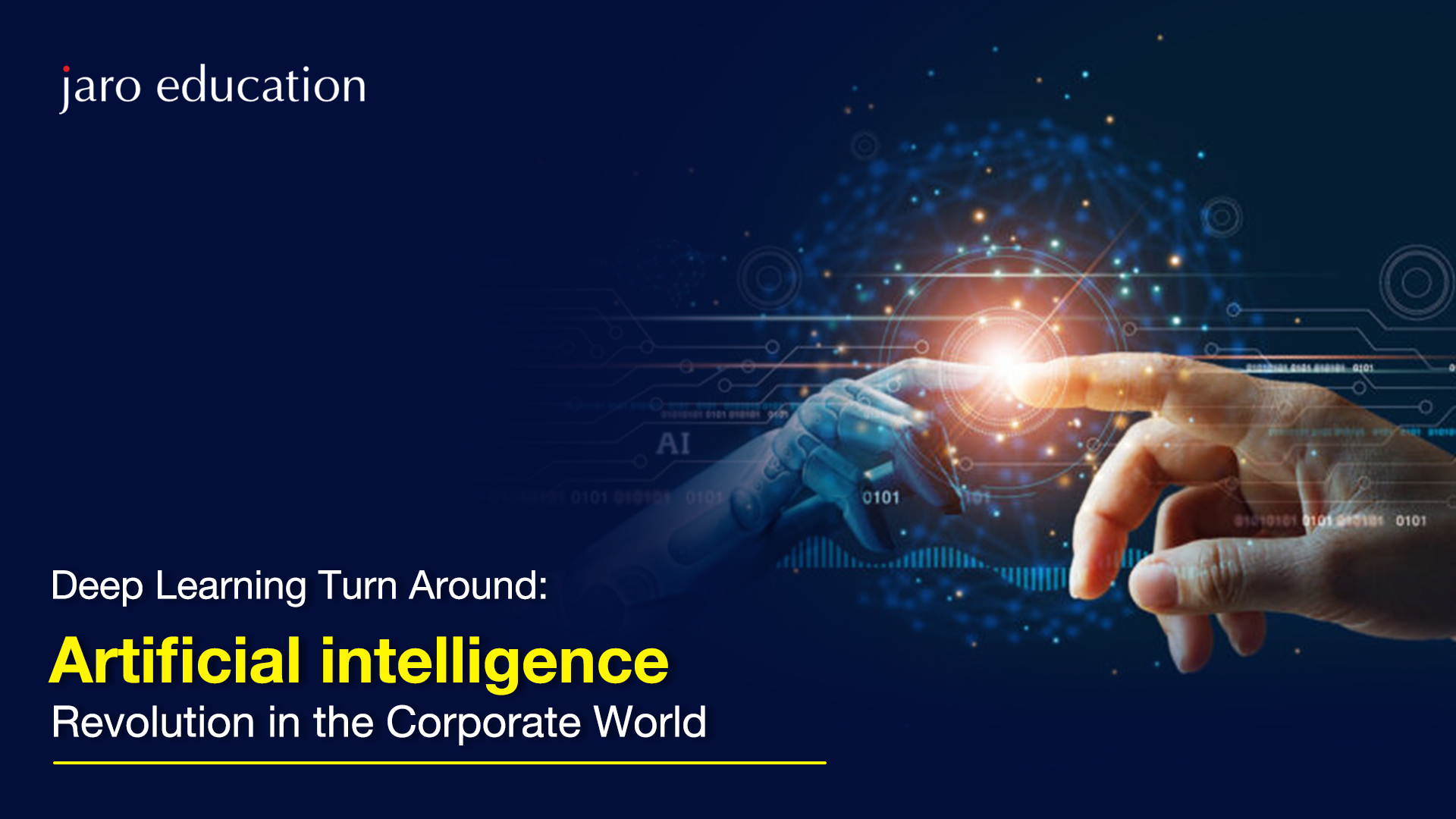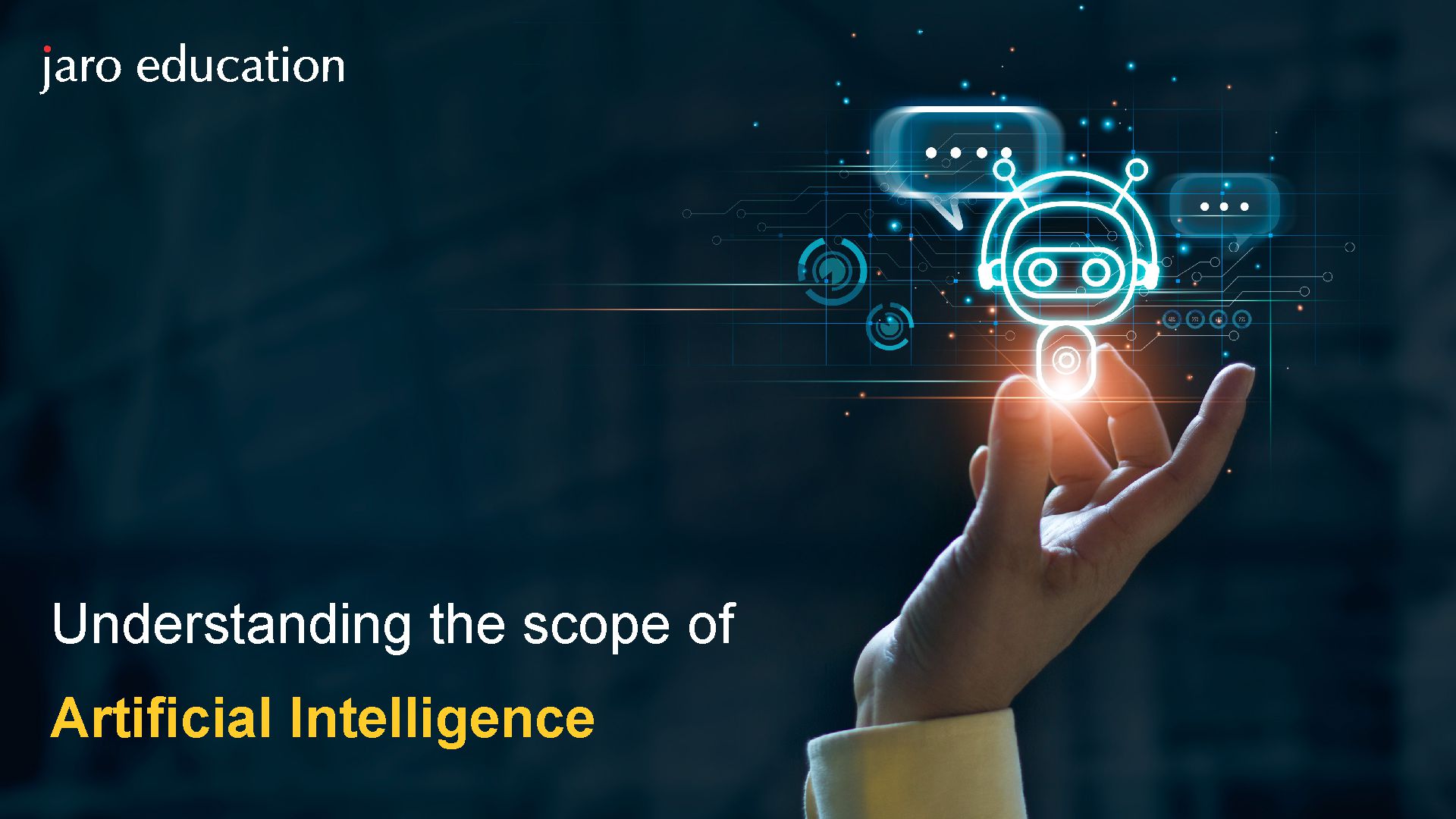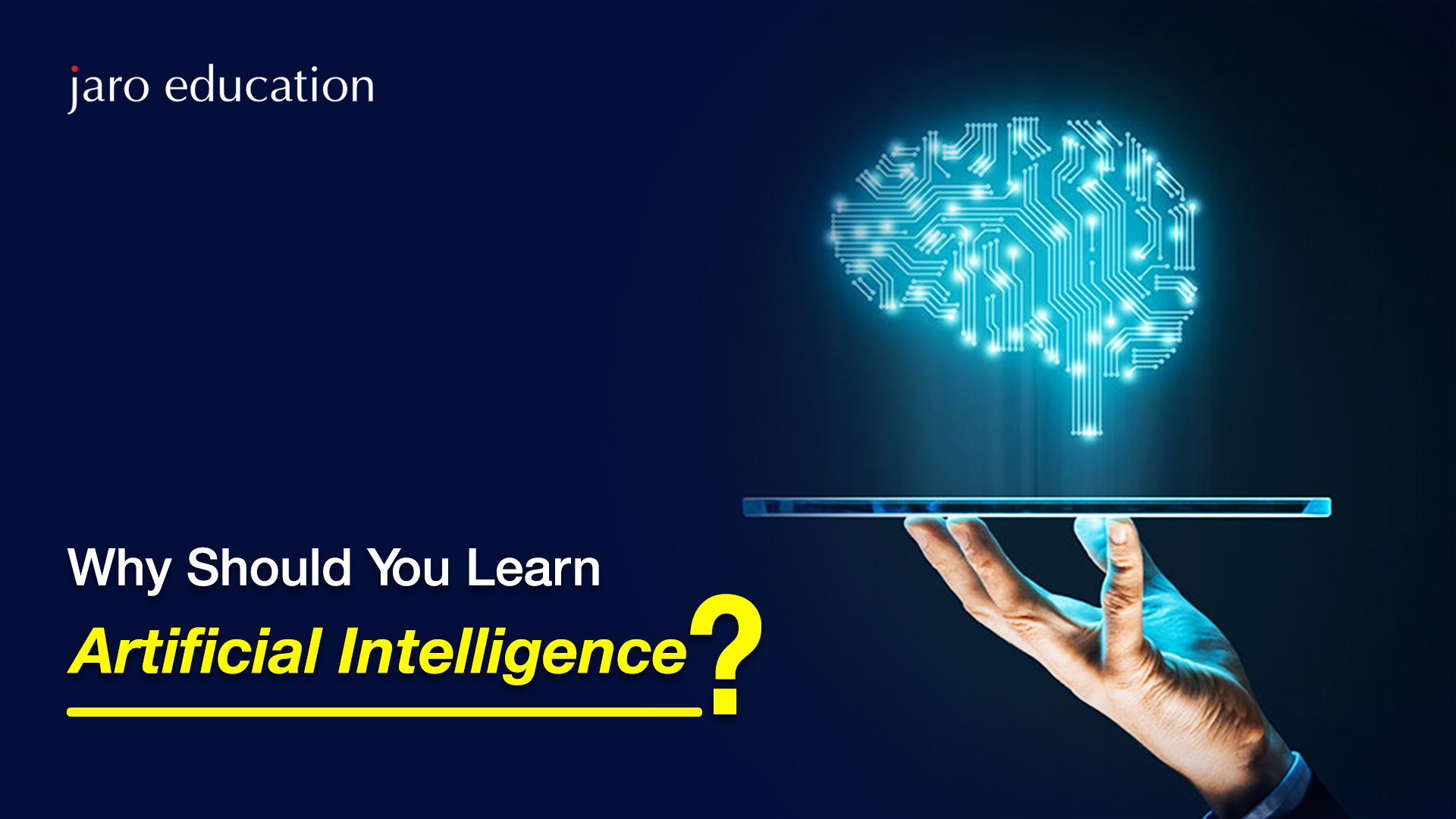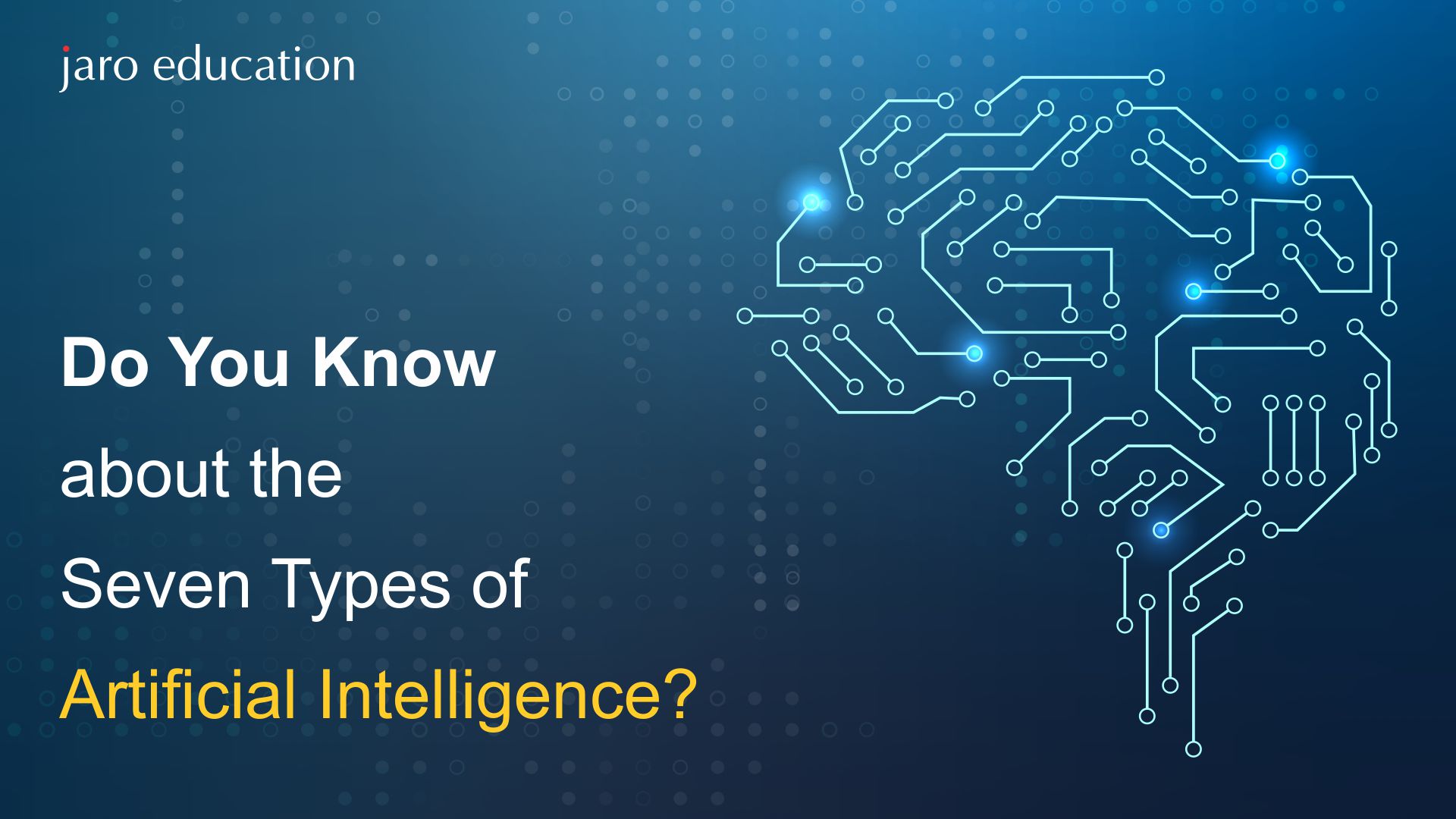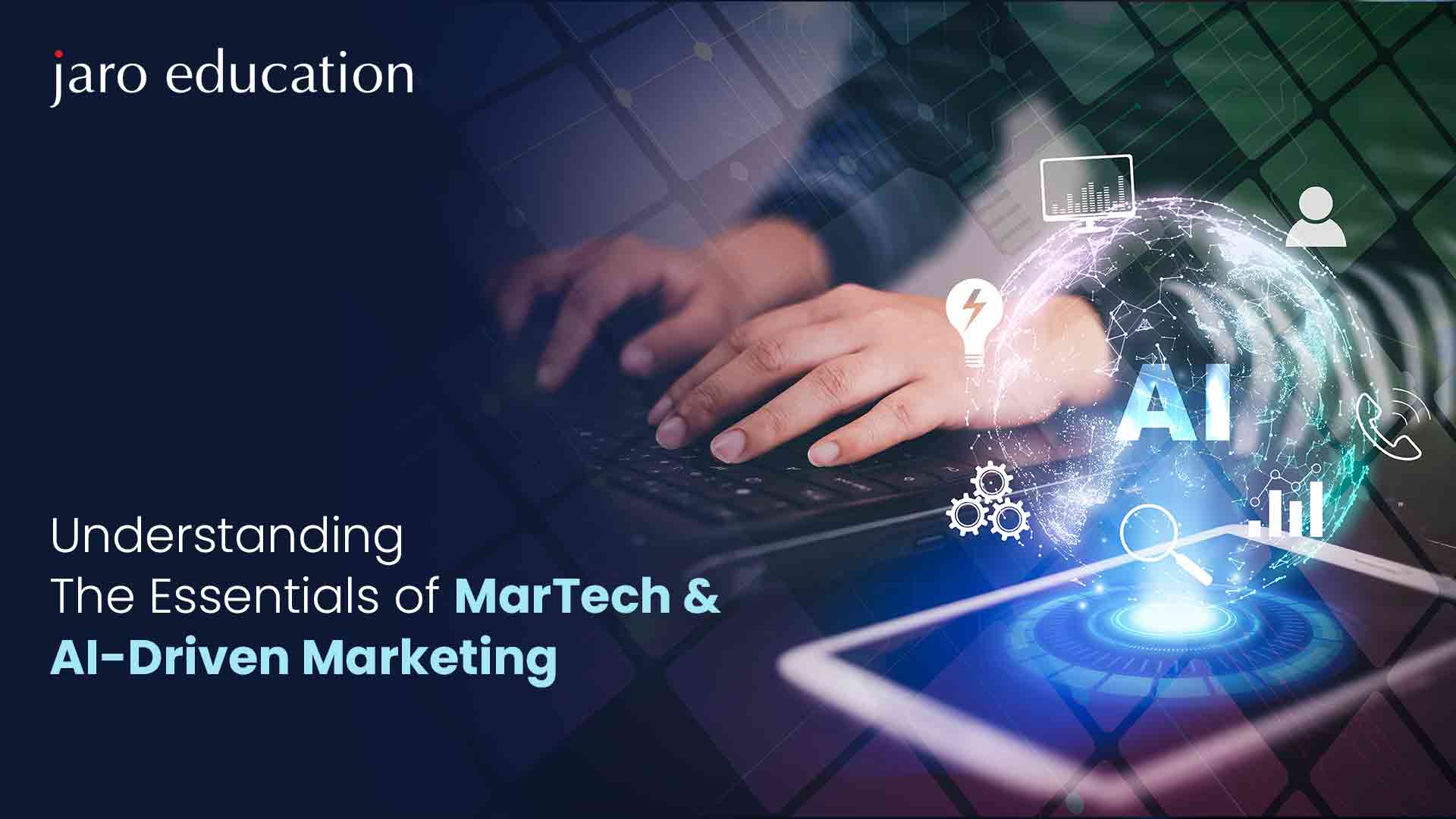
- jaro education
- 13, January 2024
- 9:00 am
In the ever-evolving landscape of business and marketing, adopting intelligent technology solutions has become a pivotal strategy for companies seeking to enhance operational efficiency and customer experience. The widespread incorporation of Artificial Intelligence (AI) marketing platforms is a forefront contender in this technological revolution. These platforms are powerful tools, empowering marketing teams with unprecedented insights into their target audiences. By leveraging AI-driven capabilities, companies can refine their understanding of customer behavior and optimize their strategies to drive conversions.
In the fast-paced world of business and marketing, using smart technology is a game-changer. One key player in this tech revolution is Artificial Intelligence (AI) marketing platforms. These platforms give marketing teams supercharged insights into their target audiences, making marketing more effective and less stressful.
In this blog, we’ll dive into the powerful impact of AI marketing platforms. We’ll see how they’re changing the game for businesses that want to stay ahead in our rapidly advancing technological era.
What is MarTech?
Marketing technology, often referred to as MarTech, encompasses a variety of software and tools designed to support the accomplishment of marketing goals. When a marketing team employs a combination of these technologies, it forms what is known as their marketing technology stack. MarTech has become integral to digital marketing campaigns, offering the potential to enhance marketing endeavors across various channels.
Table of Contents
The role of technology in marketing is progressively expanding, reshaping the marketing landscape as MarTech evolves into a more sophisticated entity. This evolution empowers brands to navigate customer journeys’ continually shifting and fragmented paths adeptly. In essence, marketing technology stands as an indispensable element for the future of contemporary marketing.
Moreover, the significance of marketing technology lies in its comprehensive consideration of execution needs from inception to completion. This capability allows marketers to scale their marketing endeavors seamlessly. Additionally, MarTech is important in enhancing communication and collaboration with peers and customers. The improvement in these B2B and B2C relationships creates a positive ripple effect on the overall quality of connections established with customers.
Here are some interesting stats about MarTech that show how rapidly marketing technology is growing
- Based on research by the American Marketing Association, approximately 70% of SaaS and tech companies utilize integrated MarTech tools.
- A recent survey conducted by Statista among CMOs in France, North America, the United Kingdom, and Germany revealed that most companies allocate 26% of their marketing budget to MarTech tools.
- According to another Statista report, the global marketing automation industry is projected to reach nearly $25.1 billion by 2023.
- The Salesforce State of Marketing Report discovered that, in 2021, 84% of content marketers incorporated AI tools into their strategies.
- Additionally, a Statista report highlighted that the use of AI-powered MarTech tools ranked as the third most employed marketing tactic by marketers in the United States.
- According to a Salesforce report, the adoption of AI MarTech solutions by marketers has surged by almost 186% from 2018 to 2021.
The Evolution of MarTech and AI in Marketing
Over the past decade, marketing technology has rapidly evolved, progressing from basic email platforms to sophisticated AI-driven systems. This transformation has empowered businesses to interact with customers in more personalized, efficient, and data-driven ways. Here are some key developments that have shaped this dynamic landscape.
Customer-Centricity Revolution
AI and machine learning enable highly personalized marketing, boosting conversion rates and customer satisfaction.
Mandatory Marketing Automation
Essential for businesses, marketing automation platforms now employ AI algorithms for precise lead generation, nurturing, and targeted campaigns.
AI and ML Integration
Game-changing technologies empower data-driven decisions, enhance personalization, and optimize campaigns in real-time.
Customer Data Platforms (CDPs)
CDPs break down data silos, providing a holistic view of the customer journey and enabling seamless experiences across channels.
Social Media Marketing Evolution
Platforms like Facebook and Instagram transform into powerful marketing channels for targeted advertising and real-time engagement.
Video Marketing Dominance
Explosive growth in video content, leveraging platforms like YouTube and TikTok for dynamic audience engagement.
Email Marketing Paradigm Shift
Automation, personalization, and mobile optimization redefine email marketing strategies.
As a result, the MarTech industry has witnessed significant growth, with the MarTech Landscape visualization by Scott Brinker exemplifying this expansion. In 2011, it started with 150 companies and has now surged to a staggering 9,932 MarTech solutions in 2020, reflecting the sector’s remarkable progress over the past decade.
MarTech usually utilizes AI and ML technologies to streamline processes and enhance management. These solutions have played a pivotal role in creating, communicating, and delivering offerings since their inception. For instance, CRM software has revolutionized the MarTech landscape, efficiently tracking the customer journey from lead conversion to retention.
Looking ahead, it will remain a driving force in marketing strategies, fueling innovation and reshaping the customer experience.
Key Components of MarTech and AI-Driven Marketing
Many marketing organizations fall into the trap of believing that more technology is always better. As per the latest reports, nearly 7,000 MarTech products are available, so it’s easy to accumulate a vast array of tools. However, this approach often results in a MarTech stack resembling a tower or even a skyscraper. Despite the initial appeal, this quantity-over-quality strategy may not yield the desired return on investment.
A successful MarTech stack shouldn’t prioritize quantity alone; it must emphasize quality and align with the specific needs of your organization. While budget constraints are crucial, it’s equally important to consider your organization’s structure and target audience.
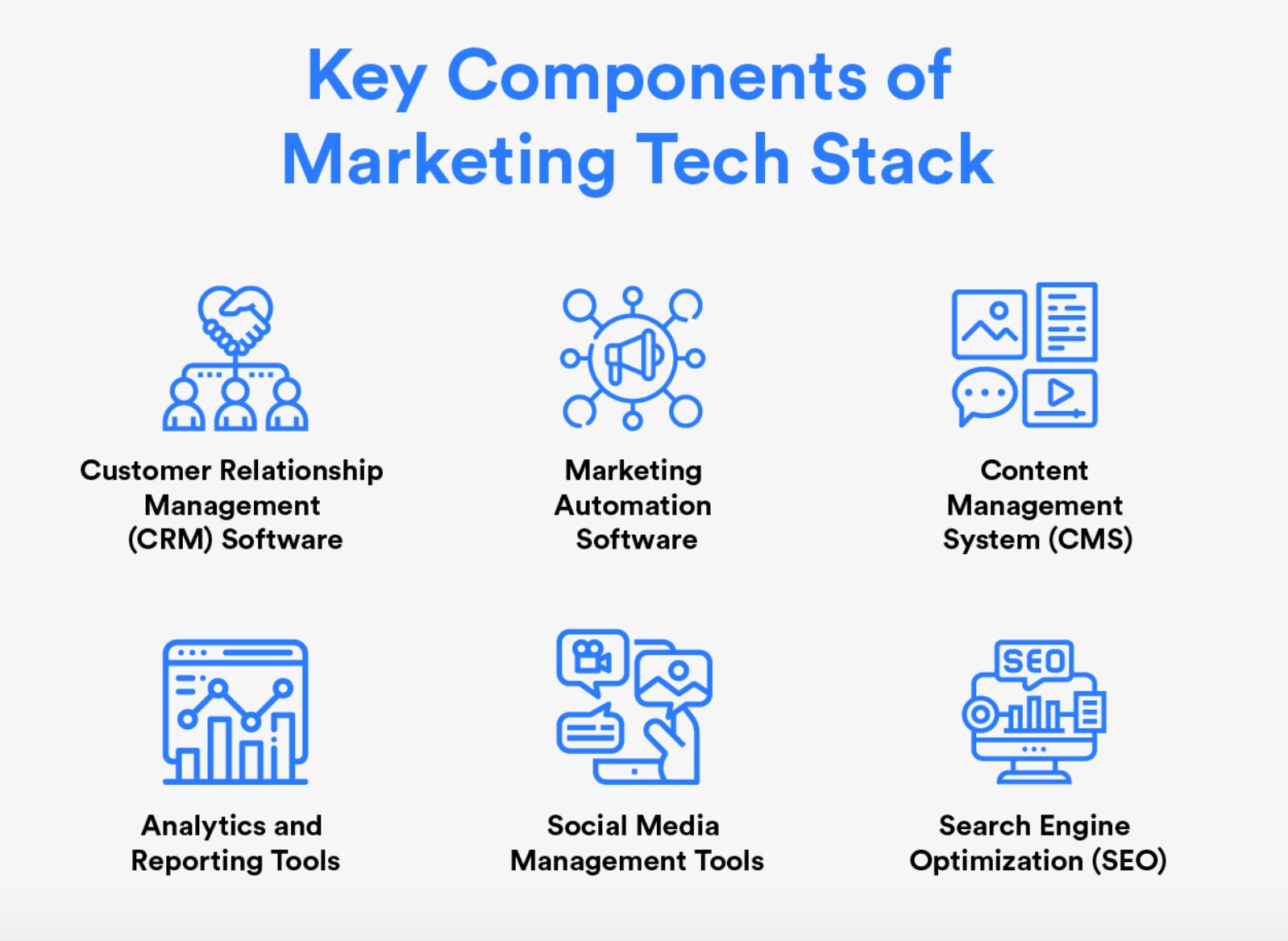
*wotnot.io
Every effective MarTech stack should incorporate these fundamental building blocks:
Email Marketing Platform
Use a dedicated platform to manage email marketing campaigns efficiently.
Automation Software
Employ automation tools, such as a social media scheduling tool, to optimize time spent on social media activities.
Content Management System (CMS)
Host your website and blog on a reliable content management system to streamline content organization.
SEO Tools
Utilize SEO tools for targeted guidance on reaching your audience effectively.
Advertising Technology
Implement advertising technology to enhance customer acquisition and reach new market segments.
AI-driven Analytics Tools
Employ AI analytics tools to analyze and organize diverse data types, facilitating informed marketing decisions.
Mobile Marketing Tools
Leverage tools and apps specifically designed for mobile marketing to enhance outreach.
Customer Relationship Management (CRM) Software
Collaborate seamlessly with sales teams by using CRM software, enhancing efforts to personalize the customer experience.
Role of AI in MarTech Solution
Artificial intelligence (AI) plays a crucial role in facilitating meaningful connections between marketers and consumers. The key components of AI marketing represent cutting-edge solutions that bridge the gap between the vast volumes of customer data and the actionable steps digital marketers can take in their upcoming campaigns.
Machine Learning
At the heart of AI marketing is machine learning, a technology driven by artificial intelligence. It involves computer algorithms capable of analyzing information and autonomously refining digital marketing campaigns based on experience. Devices utilizing machine learning assess new data in the context of relevant historical information, guiding digital marketers by highlighting what has proven effective or ineffective in the past.
Big Data and Analytics
The advent of digital media has ushered in an era of “big data,” offering digital marketers opportunities to comprehend their efforts and accurately assign value across various channels. However, this has also resulted in an information overload, leaving marketers puzzled about which data sets are truly valuable. AI marketing swiftly navigates through this sea of data, distilling it to its essentials. Not only does it analyze the data, but it also recommends the most valuable elements for future digital marketing campaigns.
AI Marketing Platforms & Tools
Effective AI-powered marketing solutions provide digital marketers with centralized platforms for handling vast amounts of collected data. These platforms extract valuable marketing insights from the target audience, empowering data-driven decision-making to reach them effectively. For instance, frameworks like Bayesian Learning and Forgetting assist marketers in gauging a customer’s receptiveness to specific digital marketing efforts, providing clarity in campaign strategies.
If you’re interested in applying AI and ML in marketing, be sure to explore The Executive Programme in MarTech and AI-Driven Marketing – IIM Indore. Tailored for marketing professionals and executives, this specialized programme aims to boost your expertise in marketing technology (MarTech) and AI-driven marketing. This programme emphasizes the strategic blending of technology and artificial intelligence into marketing strategies.
Case Studies: Successful Implementation of MarTech and AI
HubSpot’s Growth Journey through Inbound Marketing
HubSpot, a top-notch MarTech solutions provider, achieved remarkable growth by employing its own inbound marketing tactics. Utilizing its unique tools, HubSpot successfully generated top-tier leads, boosted website traffic, and enhanced lead conversion rates. The company harnessed the power of content marketing, social media, and search engine optimization (SEO) to captivate its intended audience. This strategic approach led to a substantial 65% surge in lead generation and an impressive fourfold increase in website traffic.
Sephora’s Improved Customer Experience through AR Technology
Sephora, a well-known beauty retailer, employs augmented reality (AR) technology to elevate the customer experience. Through the use of AR, Sephora enables customers to virtually test makeup, offering an enjoyable and interactive experience that boosts engagement and sales. This forward-thinking strategy has yielded remarkable outcomes for Sephora, with a notable 36% rise in conversions and a substantial 65% increase in basket size.
Coca-Cola’s Virtual Reality to Enhance Brand Visibility
In the vast realm of global beverage companies, Coca-Cola stands out by employing virtual reality (VR) technology to elevate brand awareness and audience engagement. Through the utilization of VR, Coca-Cola designs captivating and interactive experiences, establishing a stronger connection with its intended audience. This forward-thinking tactic has proven fruitful for Coca-Cola, yielding noteworthy outcomes such as a 15% surge in brand awareness and a remarkable 20% boost in social media interaction.
Spotify Harnesses AI for Tailored Music Suggestions
In its role as a top-tier music streaming service, Spotify employs artificial intelligence (AI) to customize music recommendations for its users. Through the analysis of user behavior and preferences, Spotify provides personalized suggestions for music and playlists, ensuring users stay interested and committed to their subscriptions. This individualized strategy has proven successful for Spotify, resulting in a noteworthy 35% rise in user engagement and a substantial 25% increase in subscriber retention rates.
Popular trends in MarTech and AI-driven marketing
The Rise of User-Friendly MarTech Tools
No-code MarTech tools are gaining traction, making it easier for content marketers to create various content elements without the need for advanced programming skills. Today’s market offers solutions that automate and simplify tasks ranging from website creation, blogging, and landing pages to data analysis and video marketing.
Sustained Popularity of Chatbots
Chatbots remain among the most favored MarTech tools. New companies are consistently introducing AI-powered chatbots that deliver personalized experiences to customers. There’s also a demand for simpler chatbot solutions to meet various business needs.
Podcast Marketing Tools Soaring in Demand
Recent research reveals that nearly 33% of adults in the United States regularly listen to podcasts. As the popularity of podcasts grows, so does the demand for specialized MarTech tools tailored for podcasting. A quick Google search unveils a plethora of options dedicated to enhancing the podcasting experience.
Email Marketing Tools Making a Comeback
While email marketing is one of the oldest digital marketing methods, it’s making a resurgence in today’s marketing landscape. Many companies are turning to tools to streamline the email marketing process. While comprehensive solutions like Mailchimp remain popular, there’s a rising market for niche solutions focusing on specific aspects of email marketing, such as SubStack.
Conclusion
In conclusion, the success of any digital transformation strategy hinges on leveraging the expertise of professionals within the enterprise. The transformative potential of AI and ML has alleviated the traditional burden on marketers to master data and technology. By entrusting technology, data, and analytics experts to deliver these capabilities, businesses can tap into the exciting trends of advanced marketing analytics. The corporate landscape has unequivocally shifted, and those not embracing this change risk falling behind.
McKinsey’s research underscores the widespread anticipation of substantial impacts from AI in marketing, and BCG’s findings reveal that a significant majority of companies are already actively incorporating AI and ML. For industry leaders, strategically embedding these capabilities as a centralized function within a marketing strategy is the key to gaining a competitive advantage and accelerating success across the enterprise.

